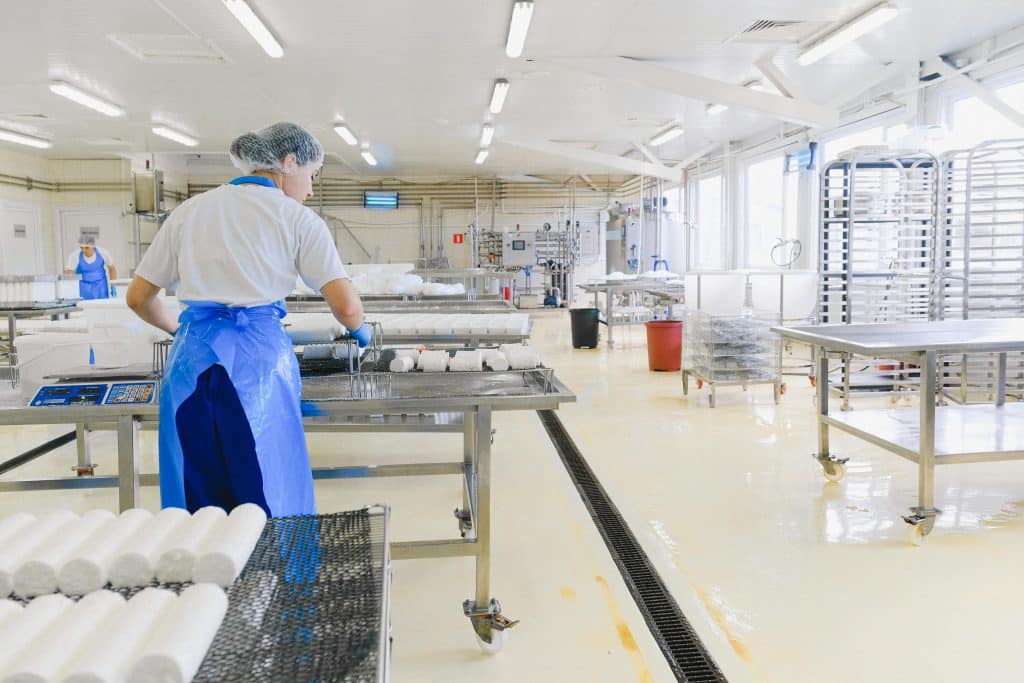The food industry is like a giant jigsaw puzzle, where every piece must fit perfectly to create a picture of quality and trust. However, product inconsistency is a challenge that often disrupts this smooth picture, posing significant issues for businesses striving to satisfy a diverse customer base. These inconsistencies can originate from several sources, such as variations in raw materials or differences in processing methods. Ensuring each product meets the same high standards is crucial for maintaining customer trust and achieving business success.
Despite the hurdles, the role of a food quality consultant is indispensable in addressing these inconsistency problems. These professionals bring expertise to tackle the intricate issues that lead to disparities in product output. By offering practical solutions and industry insights, they bridge the gap between quality control and customer satisfaction, helping businesses maintain a steady level of quality that their consumers can rely on.
Identifying Sources of Product Inconsistency
Understanding the root causes of product inconsistency is the first step toward resolving them. Here are some common sources:
– Raw Material Variability: Natural ingredients often vary due to environmental factors. Weather, soil quality, and harvest conditions can drastically alter the composition of raw materials.
– Process Variations: Differences in machinery, operational techniques, and worker expertise can lead to inconsistencies during production. Machines may sometimes not be calibrated the same way, affecting product consistency.
– Storage Conditions: Improper storage of materials or finished products can lead to quality degradation. Temperature fluctuations and humidity can affect everything from texture to shelf life.
These inconsistencies can significantly impact the final product. For instance, a bakery may find its bread inconsistent; sometimes rising perfectly, other times emerging flat. This unpredictability can frustrate customers expecting the same product each time they buy.
Implementing effective strategies to identify and mitigate these variations is crucial for sustaining quality. Consultants can play a key role by examining each stage of production and pinpointing issues that lead to quality fluctuations. Their experience and training allow them to develop tailored strategies for businesses, helping them achieve a more consistent product output.
Implementing Standard Operating Procedures (SOPs)
One of the robust solutions for achieving product consistency is the development and implementation of Standard Operating Procedures (SOPs). SOPs serve as detailed instructions that ensure everyone in a team follows the same steps to achieve a consistent outcome. This eliminates guesswork and standardises processes, making sure each product batch maintains uniform quality.
Quality consultants assist companies in crafting SOPs that are not only comprehensive but also practical to follow. They assess the existing processes, identify areas for improvement, and build procedures that reflect best practices. By doing so, they provide a foundation upon which businesses can build consistent and predictable processes.
Having SOPs in place offers a range of benefits. It leads to reduced errors, improves operational efficiency, and enhances overall product quality. It acts as a guide for training new employees, ensuring they meet the company’s quality standards from the start. In addition, it allows easy identification of deviations from the standard process, enabling swift corrective actions. SOPs help businesses maintain high-quality outputs and foster customer trust, all while improving the operation’s overall efficiency.
Quality Control and Assurance Practices
When it comes to ensuring product consistency, understanding the difference between quality control and quality assurance is crucial. Quality control focuses on identifying defects in the final product, while quality assurance aims to improve the processes used to create the product, ensuring consistency from the start. Each plays a vital role in maintaining overall quality.
To monitor quality and maintain consistency, businesses often adopt the following practices:
– Regular Inspections: Conduct frequent checks at different stages of production to catch inconsistencies early.
– Standardised Testing: Employ testing processes to ensure product characteristics like taste, texture, and appearance consistently meet set standards.
– Feedback Loops: Implement channels for receiving feedback from customers and internal departments, facilitating immediate responses to quality concerns.
Quality consultants assist in creating these systems, crafting a tailored approach that suits the specific needs of a business. By focusing on quality at every stage, companies can minimise defects and maintain happier customers, as they know what to expect with every purchase.
Continuous Improvement and Training
Product inconsistency isn’t a challenge resolved in a day. It requires ongoing efforts and improvements. Continuous improvement involves regularly revisiting processes to see what works and what needs adjustment. This approach allows businesses to stay ahead of potential issues, refining methods as needed to ensure quality never slips.
Training is equally crucial in this ongoing process. As the market changes, having well-trained staff ensures companies remain adaptable and informed. Training keeps employees aligned with the latest quality trends and standards, fostering a culture where everyone is committed to delivering consistent high-quality products.
Quality consultants play a significant role in supporting these initiatives. They help businesses set up programmes that encourage continuous improvement, providing resources and expertise to train staff effectively. This ensures everyone, from the production floor to management, understands the importance of consistency.
Ensuring Supplier Quality
Supplier quality can have a huge impact on final product consistency. Even if a company’s internal processes are flawless, variations in the quality of raw materials can lead to problems. Addressing this involves thorough vetting and constant management of suppliers to ensure they meet the necessary quality criteria.
Consultants can assist businesses in crafting supplier management programmes, assessing potential partners, and ensuring that only those committed to quality become part of the supply chain. This reduces the risk of inconsistency at its source, allowing businesses to focus confidently on their production without unexpected surprises.
Reaping the Benefits of Consistent Quality
Achieving consistent product quality is no easy feat, but the efforts invested are well worth it. By addressing inconsistencies, companies foster improved reliability and customer loyalty. Every consistent experience with a product can strengthen the consumer’s trust and increase the likelihood of repeat purchases.
Engaging with quality consultants provides businesses with the insights and strategies needed to maintain this consistency. Their expertise helps navigate the complexities of the food industry, ensuring that quality remains the hallmark of every product. This approach not only enhances customer satisfaction but also builds a resilient brand reputation over time.
As businesses strive for consistent quality and reliable performance in their products, partnering with experts can make a significant difference. MQM Consulting embodies this expertise, offering tailored solutions to address product inconsistencies effectively. For more insights into how a food quality consultant can support your journey towards maintaining high standards, explore our comprehensive services today.


